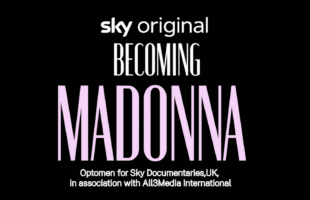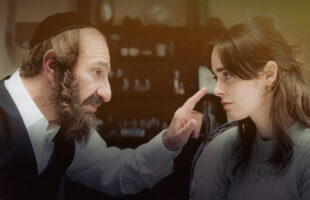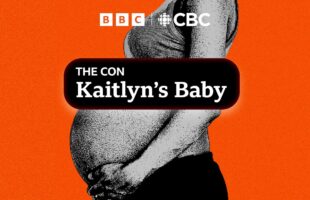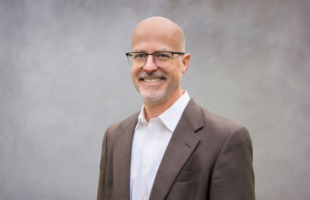Gale Anne Hurd is the Executive Producer of TWD. She is no stranger to feared creatures; having previously worked on films such as Ang Lee’s The Hulk and before that, a string of hits such as The Terminator, The Abyss, and Aliens, all with director James Cameron.
Q: Do you ever worry that the violence and gore would overtake the plot?
A: No, because the comic book, which won the Eisner, the equivalent of the Oscar for comic books, is incredibly highly regarded because it’s all about the characters. The zombies are the threat, but it’s not about them. It just makes the life-or-death stakes that much more meaningful.
Q: How are you managing costs?
A: Well, the significant budget areas would be the make-up effects, the visual effects, and the locations, because we work primarily on-location, but we have come in within budget or under budget since we started. It’s a team effort led by our line producer Tom Luse, who, with our accountants, informs us at the end of every day what the hot costs are, so we can make sure to address those on the upcoming days or upcoming episodes.
Some costs were unpredictable, say the hurricane that headed our way. If we were rained out, our sets would be destroyed. Thankfully it didn’t come anywhere near us. We did have rain, and we had to alter our schedule for interior photography as opposed to exterior, and we were able to adapt to that.
Q: How do you clear location rights for what appears to be entire stretches of roads, and in Season 1, downtown Atlanta?
A: Our location manager Mike Riley started very early on, as we knew some principal locations even before scripts are written. For example, for the farmhouse last season, Mike was out looking at all the possible farm locations within Atlanta weeks before we started shooting or building the set, so we were able to identify viable locations and negotiate in sufficient time so it wasn’t a last minute situation.
With downtown Atlanta, we were very lucky because the government in Georgia, both the state government and the local communities, are very pro-filming. They recommended that we changed our shooting schedule to shoot on weekends. So almost all of the scenes around the tank when Rick rode his horse into town were shot then.
Q: What are the advantages of shooting in Atlanta over, say, California?
A: Well, first of all, the comic book is set in Atlanta and there are some iconic images that are very important for us to capture there. Just in terms of the vegetation, the look of the landscape; you wouldn’t find those in California, so that’s why we filmed in Atlanta.
Tax incentives in Georgia also make it more advantageous than in California. In California, incentives do not apply to pilots; they only apply to TV series whereas in Georgia they apply to all filming: both TV and features. In addition to that, we found a terrific crew in Atlanta that has been with us from the very beginning (editor: an estimated 90% of crew for Season 3 hails from Atlanta).
Q: Effects makeup is integral to the show and the show has won a couple of awards for it. Can you describe the challenges involved in this process?
A: Greg Nicotero (special effects makeup supervisor) got his start working for George Romero who essentially created the modern idea of the zombie. His company KNB Efx was part of the team before AMC even gave us the green light for the series. We started doing makeup tests, which dictated actually what we chose to film on. AMC is known for shooting on film. Breaking Bad and Mad Men are both shot on 35mm. We wanted the look that was a little grainier, a little grittier and more distressed than what you would see on 35, and that’s what Super 16 gave us, without making it seem cheap. We tested a number of cameras on 35, on Super 16 and on two different types of HD cameras and a number of film stocks to see what made the makeup look best; and ultimately it was Super 16, as opposed to HD, and the network really supported our decision. They looked at the test along with us. Plus, the cameras are light and easy for hand-held work.
In terms of the actual makeup, we started primarily with the background extras, with the far-distance background extras wearing masks. The ones up close get what we call the “hero” make-up, which can take up to two hours each, and this season, we’ve added animatronics puppets to our repertoire, so it’s constantly evolving and changing.
Q: How many extras (to portray walkers) are we talking about?
A: Some days, we’ve had 150. The good news is that the extras in Atlanta have actually worked on other zombie films. But you know, it’s not for the faint of heart – you’re wearing heavy makeup in 100Ëš temperature with terrible humidity. Plus the first makeup call on big shoots can be 3 in the morning, and they’d be in makeup until we wrap, which could be 6 or 7 at night. You really have to have a lot of stamina and great commitment to play a zombie in TWD, and the amazing thing is we have many people who come back to play zombies on different episodes for multiple times!
Q: FIC has taken the series worldwide. Any issues with censorship codes?
A: Not that I’ve heard of though. Obviously, it’s an issue that each local broadcaster would deal with. But because the show generally airs later at night, mostly on paid cable or on basic cable network; it’s not going to be under the same rules as if it was under free broadcast. And clearly there are shows that are certainly a lot rougher than ours, like True Blood and Spartacus, which I think are even more challenging (for censors) than TWD.
Q: Is there pressure to continually innovate and evolve to keep the series fresh for the audience this time round?
A: You know, because the basic storyline is our characters living in a world in which they could die at any time, we do tend to have a fairly high attrition rate (laughs). So we tend to lose some of our most loved characters along the way, but we also introduce new characters. This season, two fan favourites from the comic book will be joining our cast, Michonne played by Danai Gurira and the Governor, played by David Morrissey. Also, because they no longer have the safety of the farm from Season 2, they’re now on the road looking for a new safe haven. So, that keeps the show fresh because each season, they have to deal with new threats. And this season, the tagline here in the U.S. is “Fight the Dead, Fear the Living”, which is most telling of this new world that you have to be afraid of.








